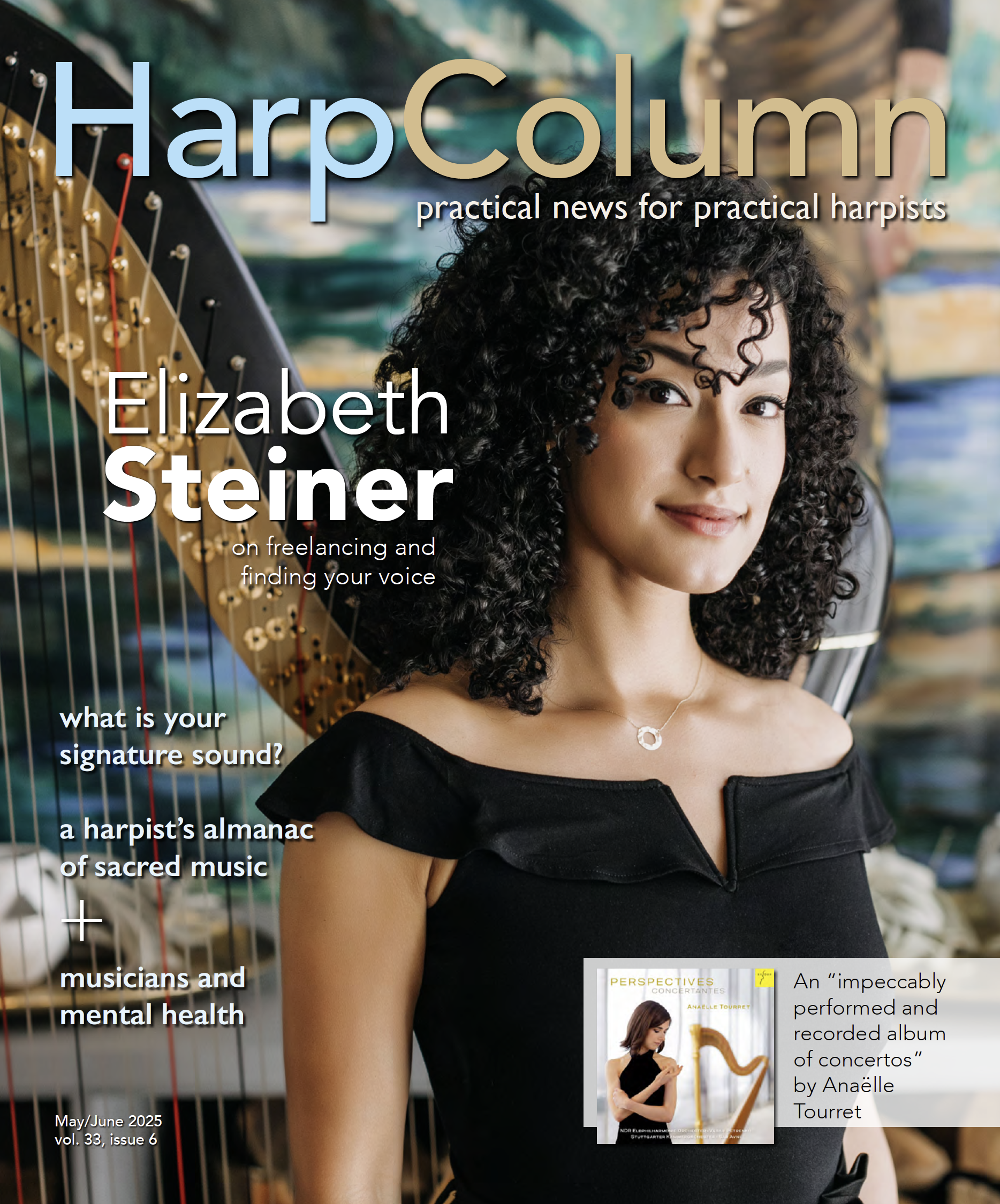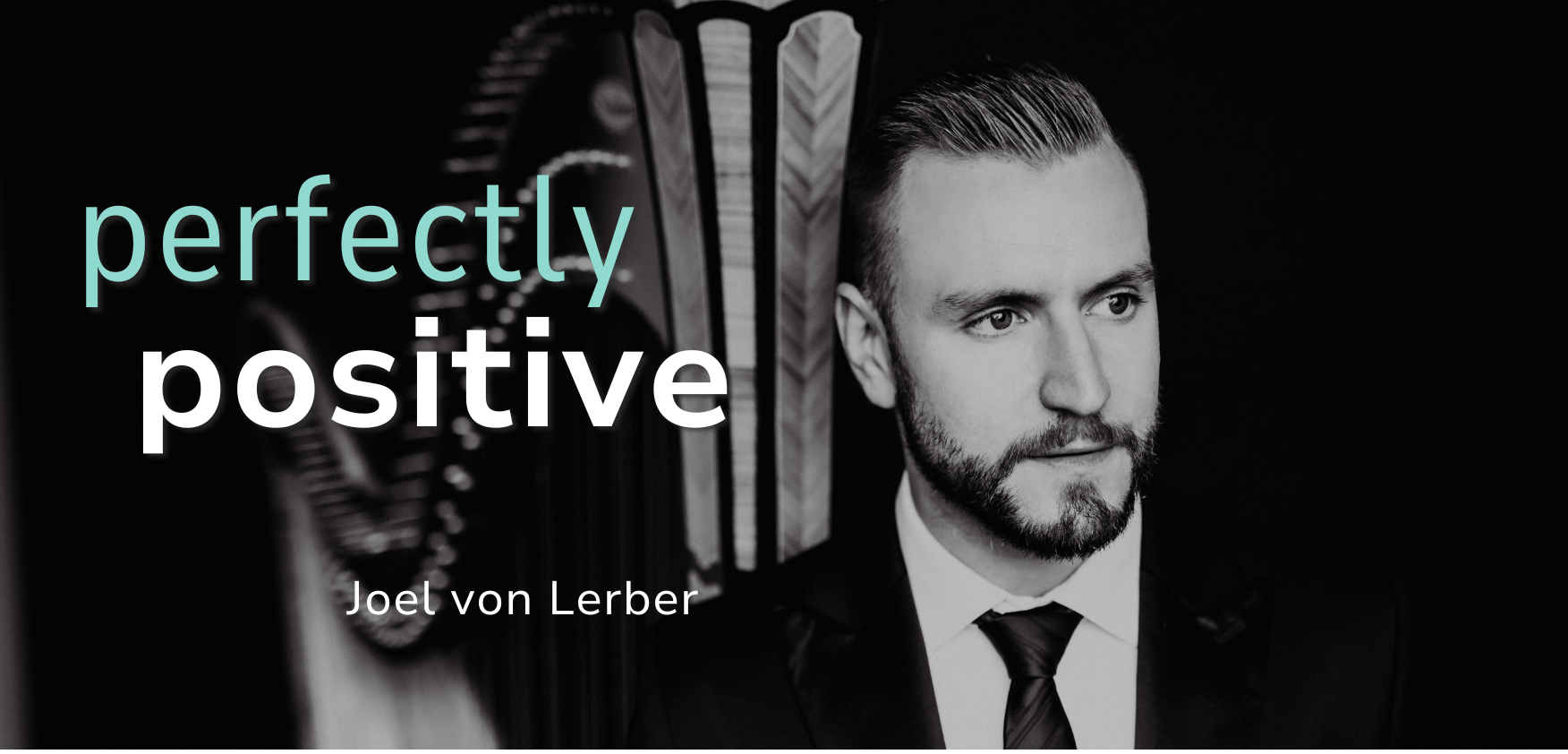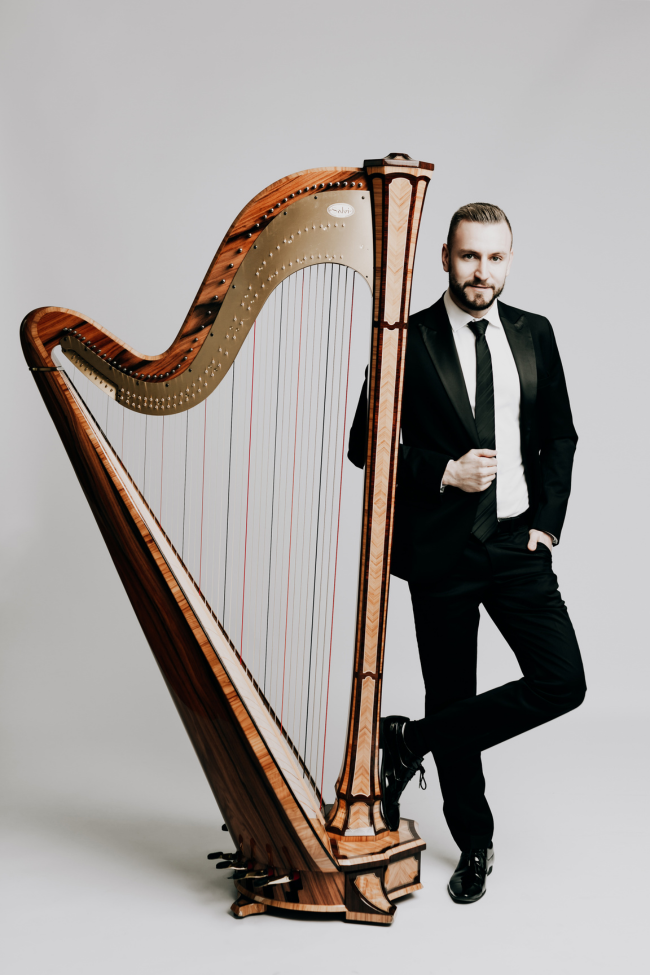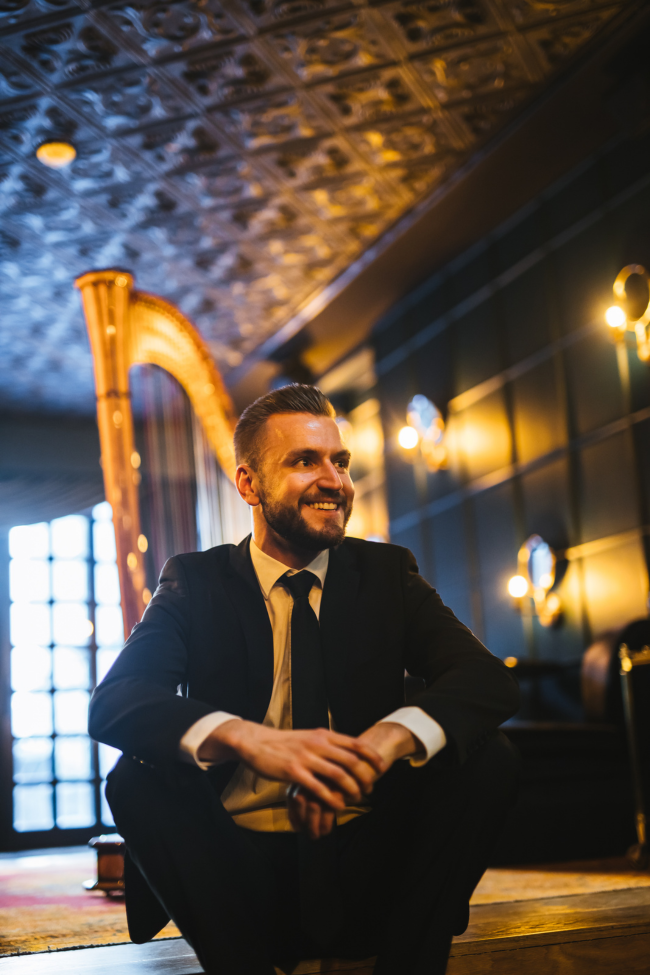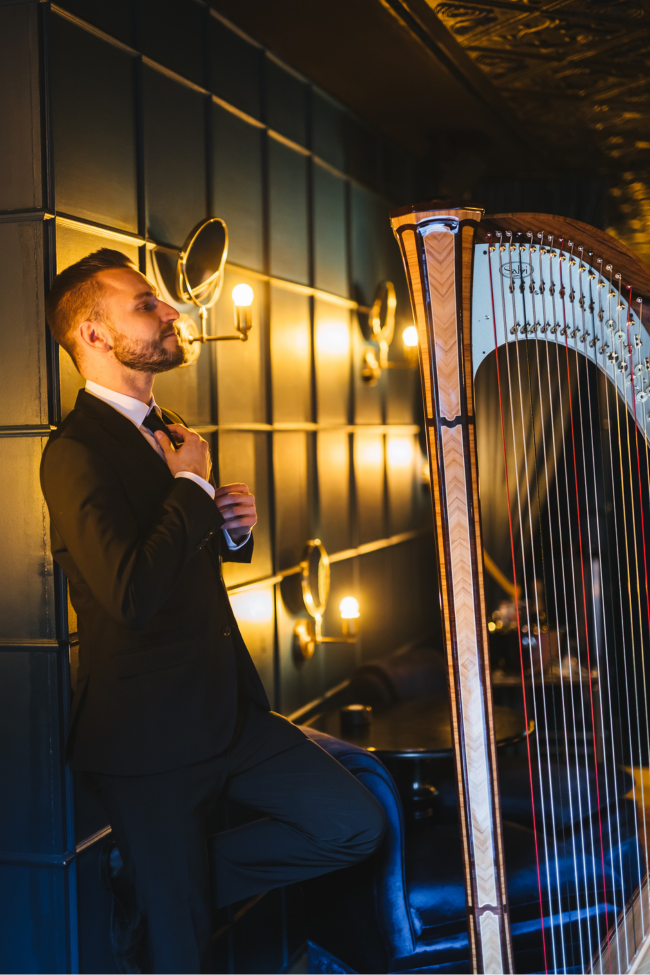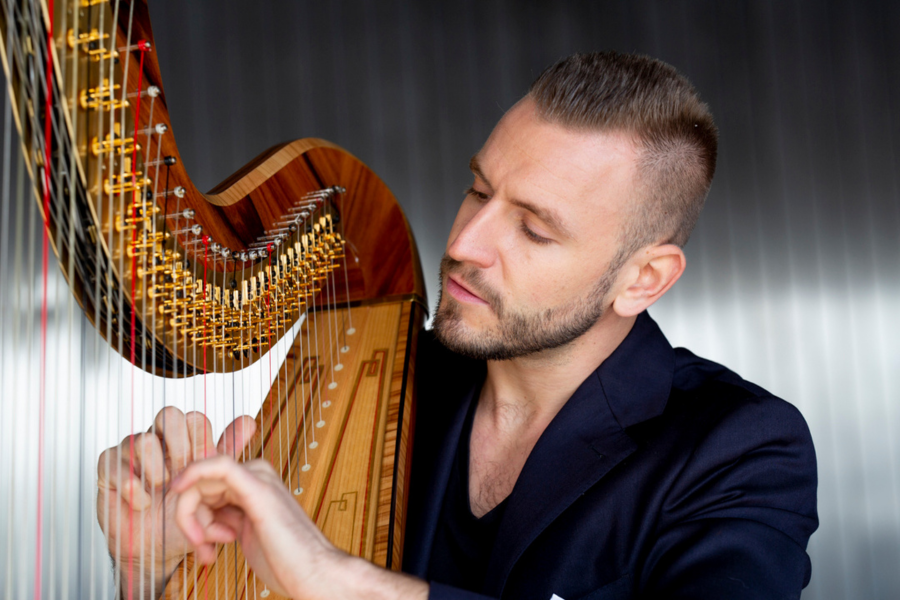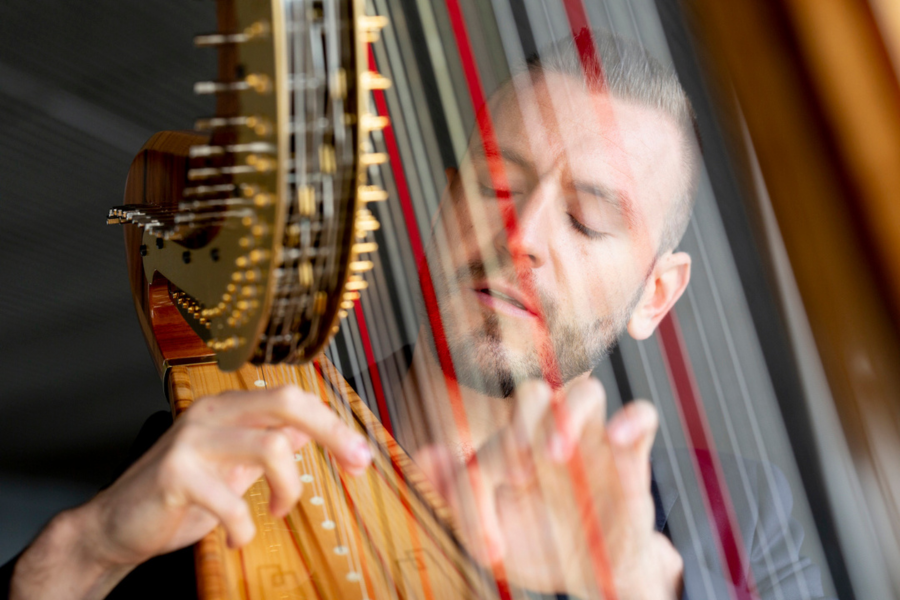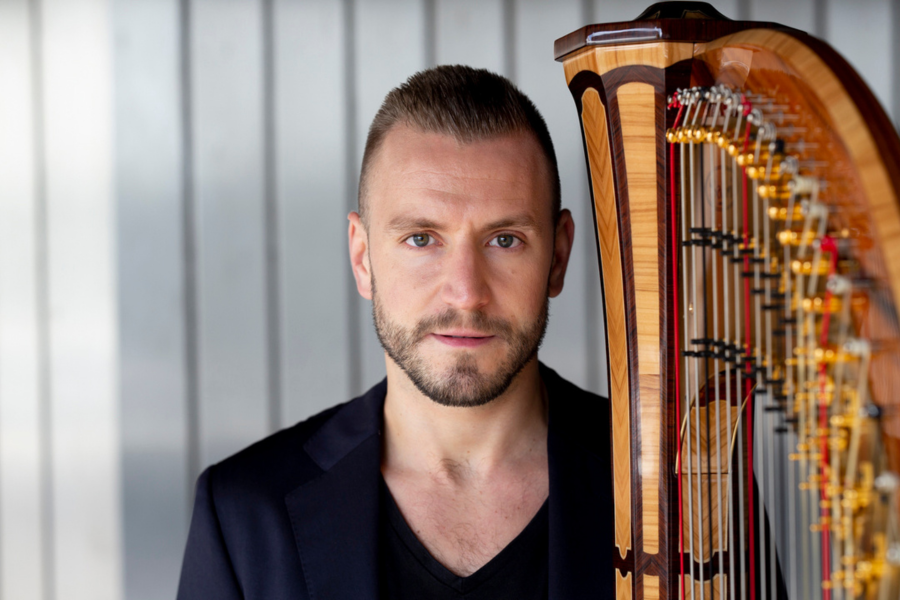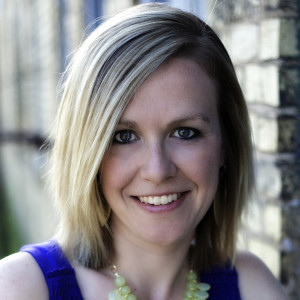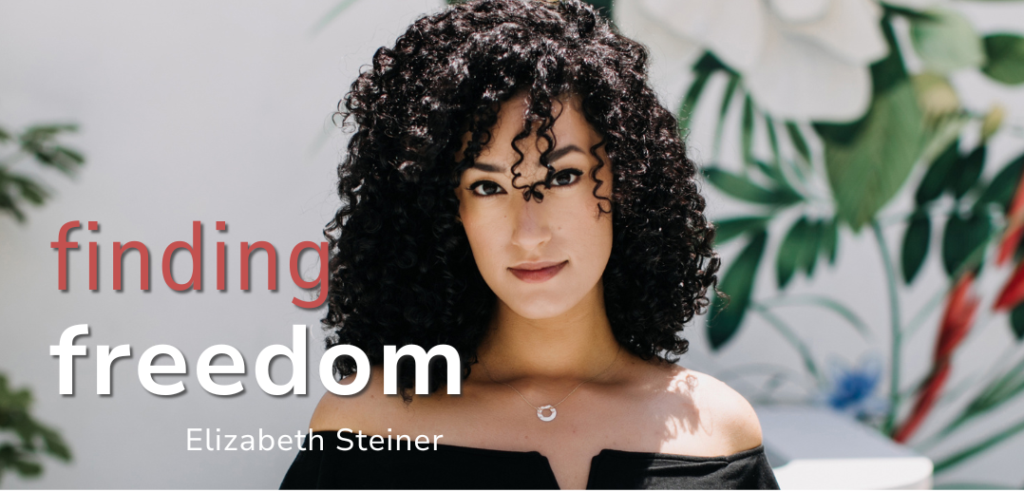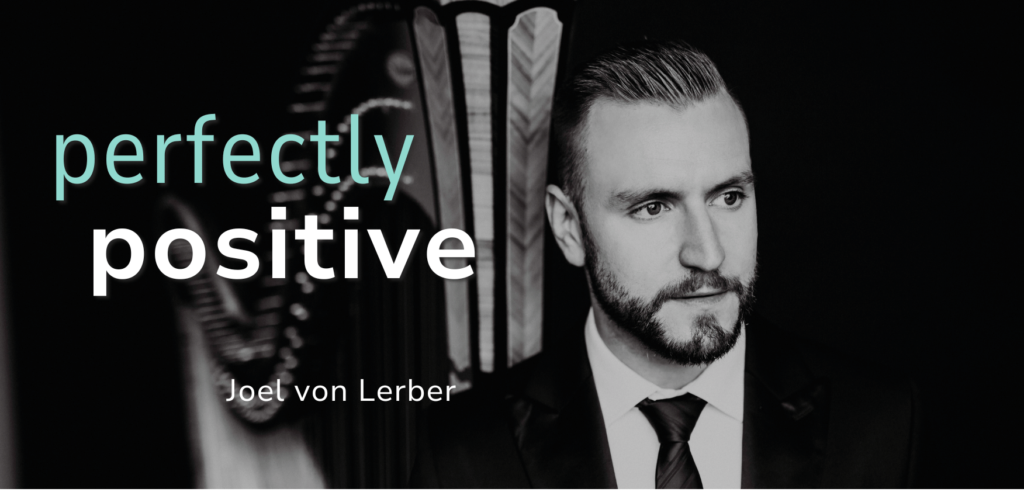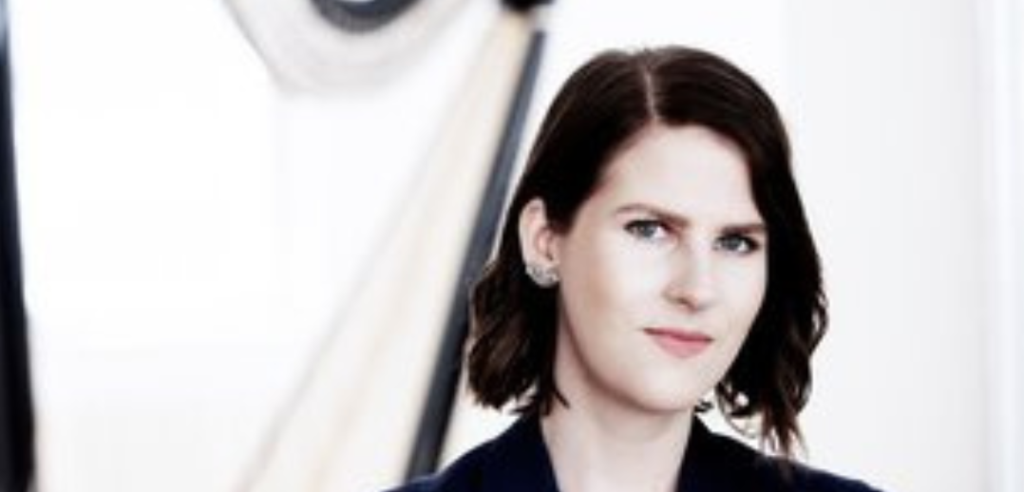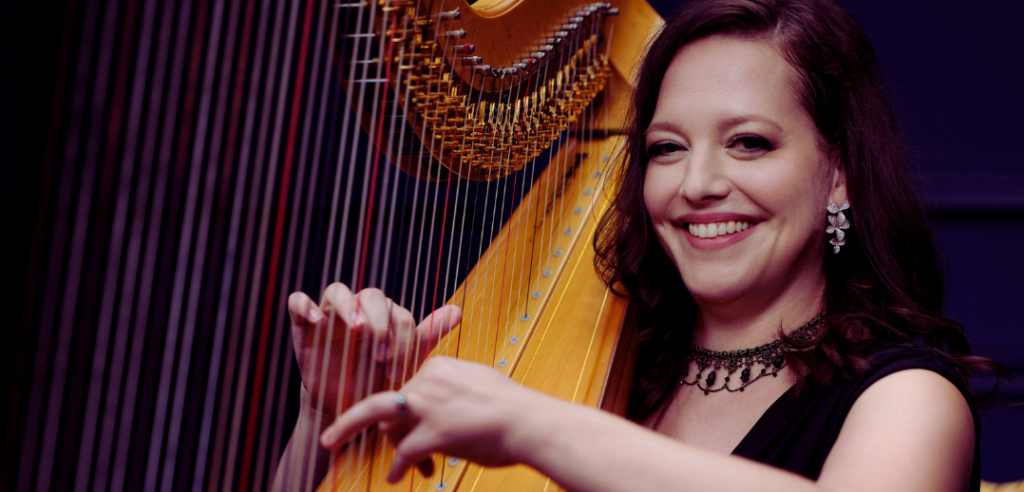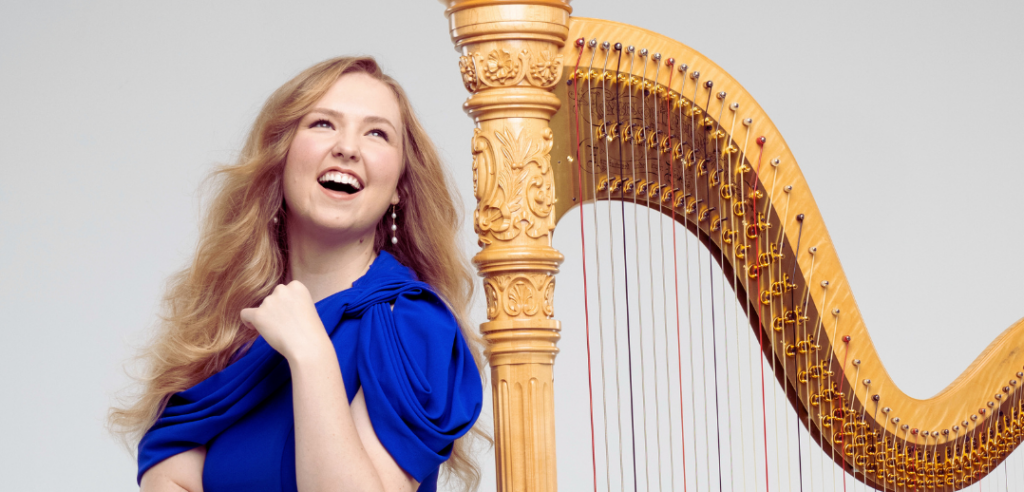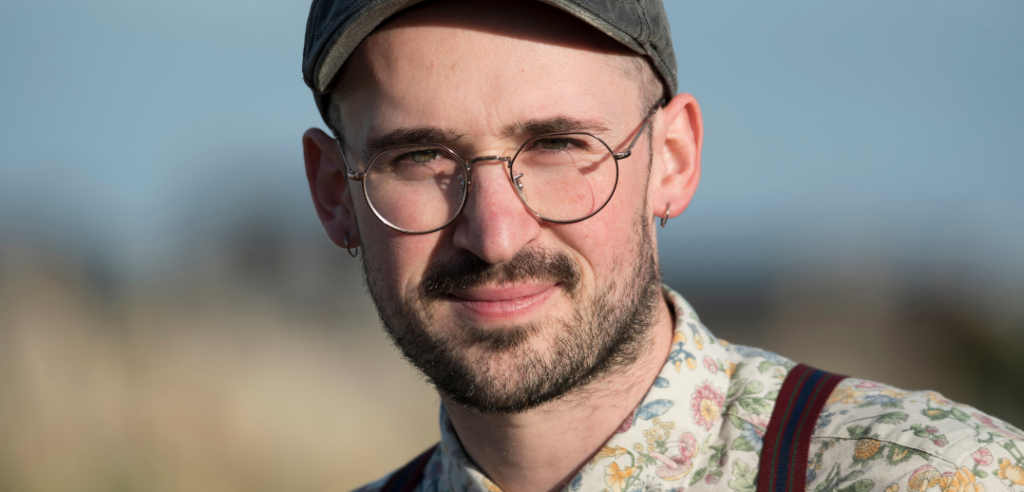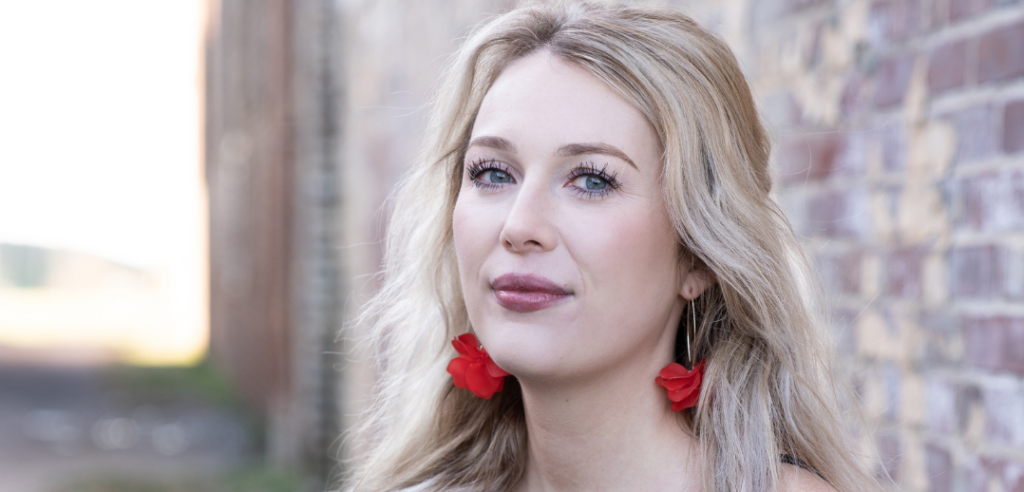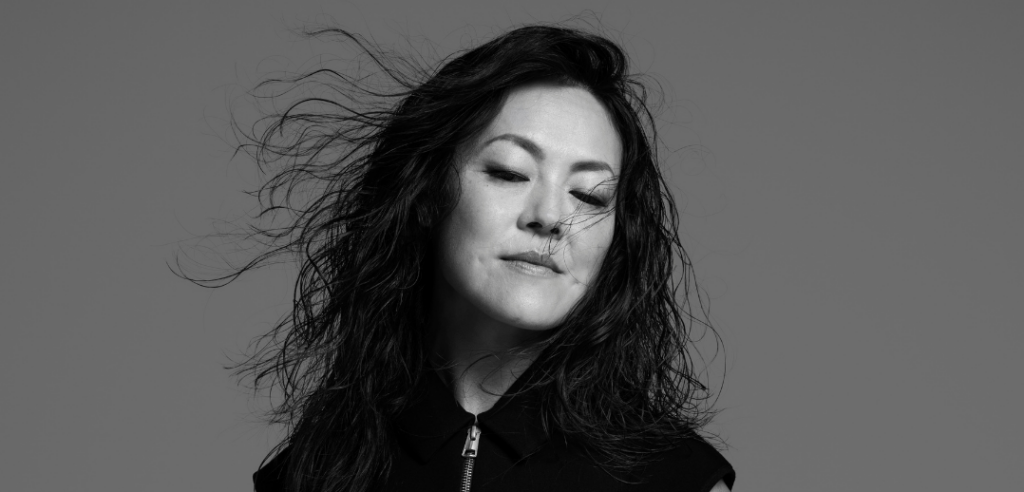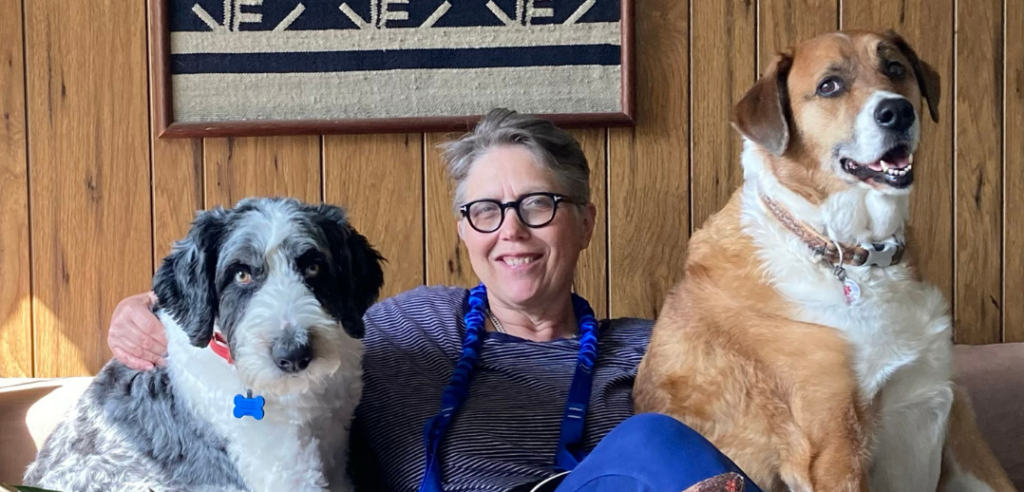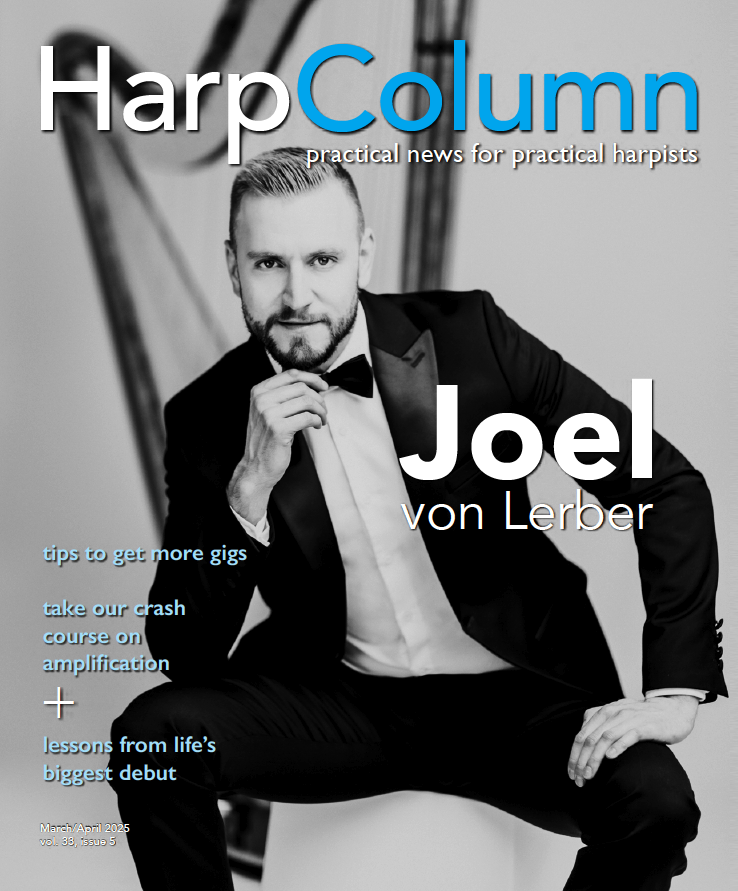Spend any time at all with Joel von Lerber and you’re sure to notice something about him—he smiles. A lot. Not that a smile is all that unusual, but for von Lerber, it is a nearly constant outward expression of his positive nature. The Swiss-born harpist is early in his career as a soloist and freelancer, which has already had its share of highs and lows. Through it all, von Lerber offers a refreshing perspective on what it takes to maintain passion in a profession that can sometimes feel all-consuming and positivity in the face of immense pressure. His journey is full of lessons about resilience, self-confidence, and finding joy in the process. Von Lerber talks candidly about how he stays grounded amid a grueling travel schedule, how failure has shaped his approach to performance, and how he strives to bring emotion and energy into every piece he plays. We caught up with Joel for a conversation on Zoom the night before he left his home in Berlin to fly to China to teach his students at the School of Music of the Chinese University of Hong Kong, Shenzhen, for the next several months. Whether he’s performing on grand European concert stages or teaching aspiring harpists in Asia, Joel’s philosophy remains clear: the music is what matters most, and above all, it should be an expression of joy.
HC:We’ve been following your career for quite some time, and this year, we’re focusing on harpists who are forging their own paths as soloists or freelancers. Your name came up early on as someone we definitely wanted to speak with to understand how you navigate your career. So, let’s dive in. In reading about you and the coverage we’ve done here at Harp Column as well as other pieces I’ve read, the theme that kept emerging was the joy you find in playing the harp. You mention this often, and I’m curious—since playing the harp is your livelihood, how do you continue to find joy in it?
I truly enjoy playing the harp. I strive for perfection, but I always make mistakes. I don’t punish myself for them. Instead, I focus on bringing out good energy and emotion. That’s what matters to me.
JVL:I think the joy comes from always being in new environments. As harpists, we’re constantly thrown into new situations. I’m lucky to travel a lot and meet many different people. And then, there’s the fun aspect—we often have a great time afterward, socializing with friends. Of course, I also enjoy the music itself. Sometimes, it’s hard. I’d be lying if I said I enjoy every single concert. I’ve played The Moldau a million times, but last week, for instance, I played it again, and I felt like, “This is really good now.” It’s a process of improvement. I truly enjoy playing the harp. I strive for perfection, but I always make mistakes. I don’t punish myself for them. Instead, I focus on bringing out good energy and emotion. That’s what matters to me. Classical musicians, in particular, tend to be very hard on themselves, but I’ve never played perfectly, and neither has anyone else—except maybe Naoko Yoshino! [Laughs]
HC:Do you ever get nervous when you perform? And if so, does it affect your playing?
JVL:Of course, I get nervous, but it’s a bit unpredictable. For instance, after the Israel competition, I felt like, “That was terrible,” but after that, I realized it didn’t matter that much. Even if I forget the music or skip a page, I remind myself, who cares? When I’m performing a solo recital, it’s fine. But when I’m playing with an orchestra, there’s a different level of stress. You have the entire orchestra behind you, and the worst-case scenario—which has never happened to me, thankfully—is that you stop playing and the whole orchestra has to stop. But that doesn’t happen if you prepare well. I get nervous when it’s something really important, something new, or with an orchestra I’ve always wanted to perform with. There’s a pressure to be the best version of yourself, and sometimes it works out, and sometimes not.
HC:You have a very positive attitude toward performing and your expectations of yourself. It seems like a more relaxed and positive mindset than what you often see in other musicians. Where do you think that attitude comes from?
JVL:I think it’s because I didn’t take myself too seriously in the beginning. I started studying music when I was 18 with Sarah O’Brien in Basel, and I thought, “Okay, let’s give it a go.” They told me I had talent, so I thought, “Sure, why not?” But I didn’t put pressure on myself at that point to have a career or to be the best. That came later. I did have ambitions, of course, and I wanted to play as well as I could. But in my younger years, I went into competitions with a relaxed mindset and figured I’d just see what happened. Somehow, this relaxed me more, but it also resulted in a lack of exact work. So when I moved to Berlin and worked with Maria Graf, I had to go through the rigorous German training system, and then I got really insecure. It was like Adam and Eve discovering they were naked after they thought everything was perfect—it made me realize there were flaws in my playing I hadn’t noticed before. Suddenly, I was aware of my mistakes, and that caused a lot of anxiety. The first time I went to Bloomington (to compete in the USAIHC), I was 21. I had no expectations, and it worked out, and I won sixth place. But when I returned at 24, I put so much pressure on myself. I was the only former prizewinner back, and I thought I had to win. I had a complete blackout during the first round, and I didn’t even make it past that first stage.
HC:After that experience during your second time in Bloomington, how did you move forward and how have you reacted to other subsequent moments of failure?
JVL:That was a tough failure. It was one of the hardest moments of my harp career. I had spent two years preparing for that competition, and many people had told me, “You could be the one to win.” So, I put a lot of pressure on myself. My professor even said, “I expect at least a top-three from you.” I wanted to win. So when I went on stage, I was just thinking about winning, about playing perfectly. I had everything planned in my head. I was very prepared, but I left out something very important—I was so focused on perfection that I lost sight of the music itself.
The failure was a hard lesson. I spent the next ten days replaying it in my mind, re-living the blackout. It humbled me. I realized it wasn’t just about being the best. Afterward, I promised myself I would never go on stage again and forget about the music. The music is what matters most, not perfection. I remember saying, “I will never do another competition again.” And, of course, I ended up doing more [competitions], and it turned out much better the next time.
HC: How did you move forward after that experience in Bloomington?
JVL: I was finishing my second master’s degree with Maria Graf. I was almost done with my second master’s when I faced a huge challenge. I had prepared for two years for Bloomington, but I didn’t make it past the first round. By then, my scholarship had almost run out, and I was nearing the end of my studies. I had no job lined up, and while I had some concerts, they weren’t enough to live comfortably. I was really at a low point, feeling like I had nothing ahead of me. Then, I had the chance to enter a competition for a soloist diploma at the Hochschule für Musik Hanns Eisler in Berlin. It was a big challenge since you were competing against top musicians—pianists, oboists—the best of the best at Hanns Eisler. There were 53, but I made it straight to the finals because my diploma was so good. But it was after the Bloomington failure, so I had just returned from a break where I hadn’t touched the harp for 10 days. I had no self-confidence at all. I went on stage, feeling like I wasn’t worth anything, but somehow, I ended up getting the most votes and earned the scholarship. It came with a significant grant of 25,000 euros. I honestly think I would never have gotten that scholarship if I hadn’t gone through that humbling experience before. That’s when I started rebuilding my self-confidence.
HC: So, you’ve had a lot of experience with international competitions and achieved success in them—more than most. How do you think musicians benefit from competitions?
JVL: One of the biggest things, of course, is working toward a clear goal and acquiring new repertoire. I’m still amazed at all the pieces I learned for the two Bloomington competitions and the one Israel competition—36 pieces, by heart, including a concerto. I learned pieces I might not have chosen for myself, but I’m so grateful I did it. The schedule forces you to just do it, and the process makes you better in the end. I also got sort of addicted to winning. I wouldn’t always win first place. In Russia, for example, I came third, and in Mexico and Israel, I came second, which is painful when you’re so close to first. But even so, it always brought visibility and opportunities. People started to know who I was, and when I showed up at competitions, I could sense that others were already intimidated, which gave me self-confidence.
HC: Your performance schedule is pretty full these days, and you also teach. How do you decide what projects to take on at this stage in your career? What makes something a “yes” for you?
JVL: Good question, and honestly, it’s getting harder to decide. These days, I cancel more things than I did before. I’ve always loved playing solo with an orchestra; that’s one of my favorite things to do so I try to make those concerts happen, but I’m more selective about which orchestras I’ll play with now. In the last few months, I performed the Mozart concerto three times with an orchestra in Germany and another harp concerto in Bern, Switzerland. So, those are important for me. Additionally I really enjoy to play solo recitals. I tend to say no to orchestral gigs because they’re just too time-consuming. This year, I’ve decided to reduce part of my schedule because of China. For example, I will be performing this summer in Italy and in Canada and Germany, and in the next few months I’m playing two Harpissima events for Salvi—one in Dublin and another in France. I’ve never played in Ireland, but it’s the country of the harp, so of course I’m excited about that. But I’ve also received requests for smaller festivals, solo recitals that I had to turn down because of teaching commitments.
HC: Your travel schedule is intense—teaching in China, performing in Europe. How do you manage this new teaching position in China, and how do you fit it into your already packed schedule?
JVL: I try to adapt with my students’ schedules, spreading their lessons out instead of cramming them all into one week. The semester in China is relatively short; right now, it’s Chinese New Year, so I’ll be there until mid-May, with exams right after. I’ve planned lessons mostly at the beginning and end of the week, so if I have to travel, I’m only away for 6-7 days at a time. The jet lag can be tough. For the next few months, though, I won’t be in Berlin much. I’ll be flying to concerts or teaching in China, and it’s going to be intense, but these are the times I cherish—nice dinners with nice people I meet and a sense of celebration after every performance. I see it as a blessing.
HC: You’ve had such a diverse range of musical experiences—teaching, performing on cruise ships, collaborating with bands like OneRepublic. Do you think these things happen because you’re open to them, or do you actively seek them out?
JVL: I think a bit of both. They come to me, probably because I’m not the typical harpist. For one, there aren’t that many men that play the harp. I started posting videos on social media from a young age, showcasing my work in ways that weren’t typical—like doing light shows. Over time, that drew attention, and people started booking me for unusual events, like TV productions. I guess it’s a combination of being open to new things and having a bit of a different persona than the “blonde angel harpist” stereotype.
HC: You’ve cultivated a reputation as someone who is open to new experiences, while still excelling at the highest level of classical music. How do you think you’ve benefited from seizing the moment and being open to what’s possible?
JVL: I think every person who does something unusual for the harp brings visibility to the instrument, which is a plus. For example, I don’t do electronic music or experimental stuff like some others, but that’s what makes it interesting—different people take the harp in different directions. People like Remy Van Kesteren, who works with electronics, or Brandee Younger in jazz, are doing amazing things that I personally can’t do. But that’s the point: everyone should follow their passion and contribute in their own way. When someone gains visibility, it opens doors for others. I’ve found that people often think that if one harpist gets a big gig, they’re taking it away from others. But in reality, it creates more opportunities. People book musicians because of their personalities and talent, not just because of the instrument.
HC: That’s such a great perspective. How do you adapt to all the different performing environments you find yourself in? You’ve got to deal with unfamiliar harps, different acoustics, and stages, whether you’re playing with an orchestra or in a smaller venue.
JVL: When it comes to harps, I mostly play Salvi or Lyon & Healy, which are similar to my own instrument. Of course, they can all feel different in tension and sound, but I’m used to that. If I’m playing on a completely unfamiliar harp, it’s more of an adaptation, but I try not to stress over it. I don’t take it so seriously. I’m not going to drive myself crazy over minor differences. But of course sometimes it can be really bad, like the time I had a harp strung with mostly nylon and the pedals were hard to manage. I had to play Danse des lutins, which was not good. But most of the time, I enjoy playing on different harps.
HC: Let’s talk about your musical upbringing. How did you come to play the harp?
JVL: When I was four years old, I told my parents I wanted to play the harp. They were not musicians. We didn’t even have a TV, and I had never seen a harp before, but I was insistent. They thought it might be a joke, but I kept saying it. When I was 5, they finally took me to a music school. They said I had to try other instruments first, and I remember trying the trumpet, but the harp just felt right. No one really knows why I was so drawn to it. Maybe it was my destiny. [Laughs] I started lessons at age 6. At first, I practiced, but not obsessively, and after five years, I actually thought the harp was uncool and quit for half a year. But after three weeks, I missed it so much that I wanted to return. The music school had already taken me off the roster because the semester had started, so I had to wait another six months to start again. I continued to get better, but it was never my goal to become a professional harpist. I never thought, “I need to make a career and make money with this.” It was just something I loved to do, and maybe that’s why I’ve been able to approach it with a bit more of a carefree attitude than others.
HC: Over the course of your musical journey, who would you say have been the biggest influences on you?
JVL: I started with Nathalie Chatelain for the first four years, and then Simon Bilger took over. He was a student of Helga Storck, and when I was 15 or 16, he took me to Munich to play for Helga. I played for her, and I remember asking her, “Do you think I’m good enough to study music?” And she said, “You can study anywhere. Every university in Europe will accept you.” It was such an encouraging thing to hear from a professor. She became a big influence on me, and I started attending her summer master classes for five or six years, spending about 10 days with her each time. After that, I did my bachelor’s and master’s with Sarah O’Brien, who was a huge influence on me as well. After Sarah, I went to Maria Graf. So, I was exposed to the French school, very much through Sarah O’Brien, who was a student of Catherine Eisenhoffer, who studied with Pierre Jamet. Then, I also had the opposite approach with Maria Graf, along with Helga Storck on the side. So, I would say these three harpists—Maria Graf, Sarah O’Brien, and Helga Storck—have made my playing into what it is today.
HC: And now you’re the one teaching. Tell us about your summer Berlin International Harp Masterclass.
JVL: We’re already on our fifth edition, and we are still taking applications for the 2025 edition until March 31. The idea [for the masterclass] actually came about during the pandemic. We were all stuck at home, no concerts, and a friend of mine suggested I start a harp masterclass. I’ve always loved masterclasses. I used to attend Helga Storck’s masterclasses, and Sarah O’Brien’s, and Isabelle Moretti’s summer sessions, and I loved those weeks of gathering together with other musicians. But, at a certain point, I got too old for it, and that’s when I started thinking, “I would love to organize something like this.” I asked Maria Graf about good locations around Berlin, and she told me about a perfect place with a newly built venue. I posted about it on Instagram, just asking if anyone would be interested, and within 24 hours, I had 25 people respond. I was amazed! I started organizing, and it grew from there. I began with a one-week session with 10 people, which felt like a good limit. The schedule is intense—we have daily lessons, a small final concert, and a lovely environment to practice and relax. In the second year, the number of applications grew, and in the third year, I started inviting guest artists. We had a solo harpist from the Radio Symphony Orchestra Berlin, which was great because she was the opposite of me, a solo freelance artist. This year, we’ll have Stephen Fitzpatrick as a guest artist. After three years, the demand was so high that I expanded the program to two weeks. Now, we have two sessions, and it’s been incredibly rewarding. It’s so purposeful to see people working through the same challenges and goals I had 15 years ago, and to help them improve and grow. It’s an incredibly fulfilling experience, but after two weeks of that intense schedule, I’m completely dead!
HC: What advice would you give to young harpists who look up to you and are inspired by what you’re doing?
JVL: Honestly, the worst thing when you’re listening to a musician, is when you’re bored—when you are sitting there and nothing is happening and you end up thinking about your groceries. It’s important to connect emotionally with the music and share that emotion with your audience. I understand it can be difficult with the pressure to be perfect and the competition, but when you’re in your own practice room, you can take the time to visualize something and connect with your emotions. Remember, studying music is not a burden; it’s a privilege. Being able to earn a living through your art is an absolute privilege. I know the pressure to earn money can be difficult, but try to remember that people want to hear you play. When they see that you’re truly on fire about it and invested in the music, they’ll want to connect with you. If you ever feel like you’re not giving that energy, ask yourself why. Are you putting too much pressure on yourself? Maybe it’s time to reassess whether you’re pursuing this at the level you’re comfortable with. Chill, enjoy life, and live some experiences—you need to have stories to share and express on stage. My theory teacher used to say, “Expression is not a lemon—you can’t just squeeze and it will come out.” [Laughs]
HC: You can’t force it.
JVL: Exactly. You can think about it, work through it, and practice. I’ve played the same pieces a million times. It’s normal to practice and strive to get better. But I’ve also seen 12-year-olds being pushed so hard by their parents to play extremely difficult pieces that I didn’t attempt until I was much older. These kids are losing their joy before they even have a chance to start. It’s a slow and steady process to learn to express yourself. •
Lightning round with Joel
If you didn’t play the harp, what would you do for a living?
I’d be a flight attendant.
Favorite place in the world you have performed?
I love to perform in Italy. I always have a blast there.
What is one bad habit you have?
I prepare popcorn quite often late, like at midnight.
What is your favorite recording that you’ve heard lately?
An album by my former professor, Sarah O’Brien, called Impromptu. She recorded the Jean Cras Deux Impromptus on, the CD, and it just blew me away.
Best part about being Swiss?
Never a problem with visas.
What’s your favorite piece to play on the harp?
It switches between The Moldau (by Smetana) and Colorado Trail (by Grandjany).
What do you like to do to unwind?
Enjoy dinner and a glass of wine with friends.
Where have you never performed that you would like to?
Australia.
What’s your secret talent?
I’m pretty good at impersonations.




